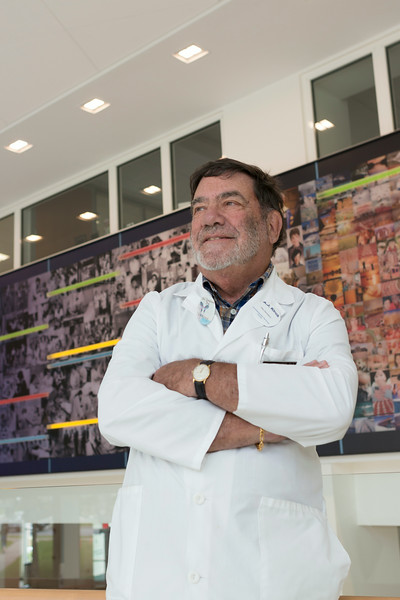More Scientists, Fewer Disabilities

At 2 months, babies begin to smile at people. At 6 months, they have the ability to identify strangers. At 12 months, they enjoy games like “peek-a-boo.”
These are examples of social and emotional developmental milestones for which about one in six children in the U.S. are not on pace, according to recent estimates by the Centers for Disease Control and Prevention. Fifteen percent of children age 3 through 17 have one or more developmental disabilities such as Down syndrome, cerebral palsy, or a disorder on the autism spectrum.
 Despite the rising number of children with intellectual and developmental diseases, a disappointing number of researchers are investigating them. Few know this as well as Philip W. Davidson, Ph.D., who served as director of the Strong Center for Developmental Disabilities — a division in the Department of Pediatrics now known as Neurodevelopmental and Behavioral Pediatrics — for 32 years.
Despite the rising number of children with intellectual and developmental diseases, a disappointing number of researchers are investigating them. Few know this as well as Philip W. Davidson, Ph.D., who served as director of the Strong Center for Developmental Disabilities — a division in the Department of Pediatrics now known as Neurodevelopmental and Behavioral Pediatrics — for 32 years.
Davidson, professor emeritus, and his wife, Margaret, decided to address the shortage of scientists in this area with a bequest intention that will establish the Philip William and Margaret Bourquin Davidson Endowed Lectureship in Intellectual and Developmental Disabilities and the Philip William and Margaret Bourquin Davidson Endowed Fellowship in Neurodevelopmental Disabilities.
“Because I have spent my life working in developmental disabilities, I know where the gaps are,” Davidson said. “We need more scientists. And Margaret and I wanted to do something that would help train them.”
Working within the Clinical and Translational Sciences Institute, the Davidson Fellowship will provide funding for research that explores causes, interventions, or outcomes for intellectual and developmental diseases. The Lectureship will support an annual lecture by a visiting recognized scholar in the field, which the Davidsons hope will help inspire people to look more closely at an area of health care where “cause” is usually unknown.
The Davidsons also recognized that clinical and translational science at the University has never been stronger than it is today. Investing in UR Medicine’s scientists ensures a return from which the whole world will benefit.
“Our understanding of the human genome and the mechanisms that can affect human development and behavior is growing at an exciting rate,” said Nina F. Schor, M.D., Ph.D., pediatrician-in-chief of Golisano Children’s Hospital and the William H. Eilinger Chair of Pediatrics. “Davidson Fellows will be among those who help bridge the gap between scientific inquiry and clinical applications that improve the lives of children.”
To find out how you can support the Davidson Fund, please contact the Golisano Children’s Hospital Advancement Office at (585)-273-5948.